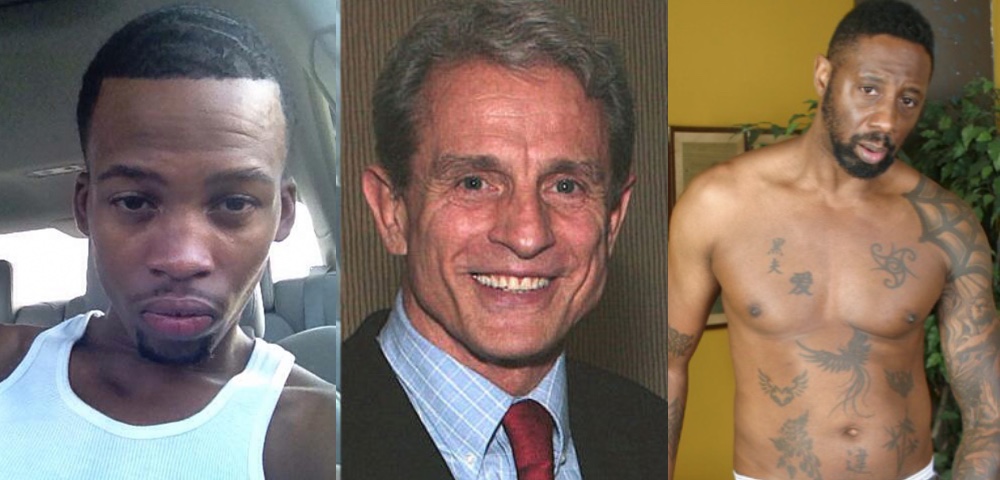On a summer day in 2017, Gemmel Moore, a young Black man, was found lifeless in the apartment of a prominent Democratic donor and businessman, Ed Buck. Rumors of Buck’s nefarious activities involving Black men and crystal meth had circulated long before this incident, yet it wasn’t until 2019, when another man, Timothy Michael Dean, also perished in his apartment, that Buck was arrested.
Unmasking a Troubling Narrative
Today, four years after Moore’s tragic end, with Buck convicted of nine federal charges and sentenced to 30 years in prison, we are left grappling with a disturbing question: how did Buck manage to elude justice for so long? Journalist Patrick Strudwick, in his new Audible podcast series “White Smoke: America’s Chemsex Killer,” seeks to uncover the unsettling answer, exploring how a toxic mix of power, wealth, and systemic racism allowed Buck to exploit Black men with apparent impunity.
Strudwick first took notice of Buck’s case in 2019 when local communities began expressing concerns about his activities. Upon delving deeper into Los Angeles’ underbelly, Strudwick began to hear harrowing stories from Black and Latinx men who had suffered at the hands of white men in chemsex scenarios. Their tales painted a grim picture of racial fetishization intertwined with oppressive power dynamics.
Buck’s Untouched Power and the Ignored Community
Buck’s capacity to dodge scrutiny, despite his high-profile position, underscored the depth of the problem. Strudwick was struck by the stark contrast between Buck’s freedom and the harsh penalties that Black individuals often face for minor drug offenses. The discrepancy raised alarming questions about the intersection of privilege, race, and the law.
The investigative journalist assembled a team to dig deeper into the issue. Their findings revealed a complex web of power, racism, and prejudice that protected individuals like Buck. The team discovered that Buck had attempted to influence officers by flaunting his connections to influential figures.
Unearthing the Deeper Racism
The team also scrutinized Jackie Lacey, the former Los Angeles district attorney, for her reluctance to act against Buck sooner. Strudwick suggests that Lacey feared jeopardizing her re-election prospects with a failed case. However, the deeper truth unearthed was that Buck’s privileged position as a wealthy white man rendered him seemingly invincible against a society ingrained with racism.
Buck’s encounters with his victims were notably racist, often belittling them with racist slurs. He would coerce these vulnerable Black men into using meth in his apartment, and if they refused, he would expel them. Strudwick describes Buck’s actions as a ruthless display of power over these men who were in dire need of money, meth, or a place to stay.
A Community at Crossroads
Co-producer of White Smoke, Micheal Rice, highlights how Buck’s case is indicative of the broader systemic racism that Black people face in America today. This extends even to the LGBTQ+ community, which is no stranger to such discrimination. Rice emphasizes that the most vulnerable are often overlooked while the wealthy and powerful remain unscathed.
To prevent a recurrence of such appalling incidents, it is crucial to initiate difficult conversations about power dynamics, wealth disparity, race, and consent, particularly within the context of sex and drug use.
Beyond the Shadows: Addressing the Chemsex Issue
Strudwick advocates for an open and honest dialogue about sex and substance use, emphasizing that it’s necessary to discuss potential harm in such scenarios. “I don’t want anyone to feel judged if they’re not harming other people. But I do want people who are being harmed to be able to go to the police, to be able to ring an ambulance, to go to their GP, to talk to their friends, and – if they feel ready – to accuse the person who has harmed them and bring them to justice,” he says.
His investigative work, showcased in “White Smoke: America’s Chemsex Killer,” serves as a stark reminder of the ongoing struggle for justice and equality in our society, particularly for marginalized communities. It emphasizes the need to address systemic racism and privilege, and to support the victims of such crimes in their quest for justice.

